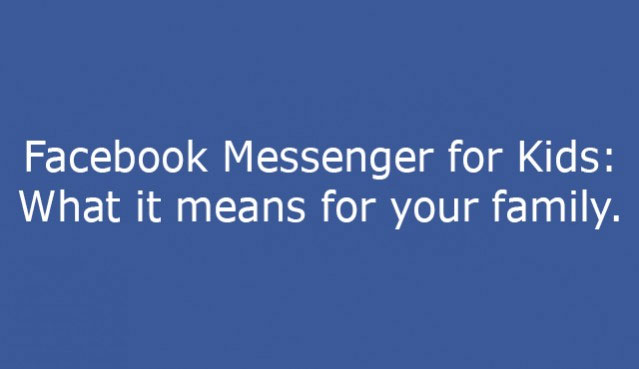
Facebook recently launched a messenger option specifically aimed at children called Messenger Kids.
“Messenger Kids is a free video calling and messaging app designed for kids to connect with close friends and family from their tablet or smartphone. Kids can only connect with parent-approved contacts, which creates a more controlled environment. Group or one-on-one video calls with loved ones are more fun with interactive masks, reactions and sound effects.”
While well intentioned, many youth organizations and health officials have urged Facebook to shut down the app, but it doesn’t appear to be making an impact. So – what does Messenger Kids mean for your family?
Here’s what the youth development team at Camp Fire want you to know:
Young people learn social rules and form real friendships. This is face-to-face, interpersonal interactions with family, schools, places of worship, and community gatherings. Our society has access to so much information, data, factoids, and online resources. With all this online connection, why is it that youth report feeling so alone, having no friends and no true connections? Our brains are predisposed to connect with other human beings. If the face-to-face connections are not made early, we may see mental health symptoms such as depression, anxiety, inability to concentrate, and so much more manifest themselves in more youth or at an earlier age.
- Although the Children’s Online Privacy Protection Act (CPOOA) was instituted to keep children younger than 13 from engaging with social media, national surveys indicate that four out of five children begin using social media between the ages of eight and 13.
- The most impactful interaction in the lives of children are real, person-to-person connections. In most people, the brain responds positively to (and needs) those relationships to develop a, “I’m glad to see you” smile, look in the eye, pat on the back, hug, or high-five.
- While we may still be learning about the effects of social media on children younger than 13, we know appropriate use must be considerate of a child’s age and individual nature. Just like when deciding what kind of television a child will be exposed to in the home, parents ideally have the power and presence to guide their child’s engagement with applications like Messenger Kids.
- For more information on details of the app and related research, go to the Center of Media and Child Health: https://cmch.tv/messenger-kids/
Are we against Facebook? No. Are we against technology? No.
We are, however, in full support of the well-being of a child. Just like diet, exercise, school performance, and doctor’s visits, technology is something children cannot navigate alone. We urge parents to research and educate themselves on the recommended amount of technology exposure while children’s brains are still developing.






